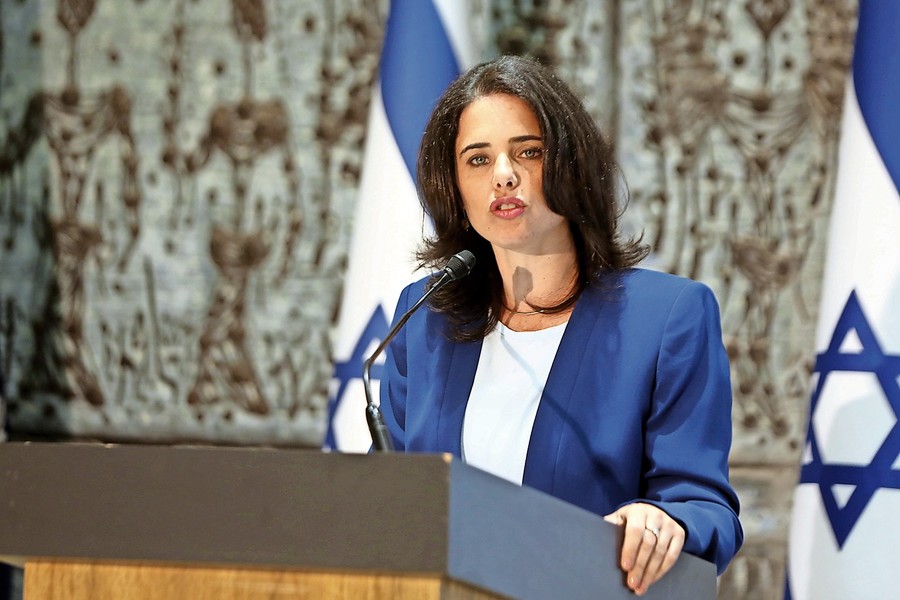5 feel-good stories out of Israel in 5776
TEL AVIV — While there was plenty to kvetch about in Israel in 5776, as we take stock at Rosh Hashana, we can each find something to celebrate.
Here are five Israeli stories from the past year worth trumpeting. Expect them to echo into 5777 and beyond.
The Olympics gave
Israelis reason to hope.
For Israel, the margin between Olympic disappointment and glory can be a single medal. The country came up empty in 2012, but two Israeli judokas grappled and leg-swept their way to bronze at the Rio games in August. Athletes Yarden Gerbi and Or Sasson were showered with flowers and hugs, and Prime Minister Netanyahu met with the judo team.
The Olympics have special meaning in Israel, where everyone remembers the 1972 Munich massacre of 11 athletes and coaches by Palestinian terrorists. The Rio games kicked off with Lebanese athletes refusing to share a bus to the opening ceremony with the Israeli delegation. And days before Sasson won his medal, a defeated Egyptian adversary pointedly refused to shake his hand. Israelis booed along with the crowd at the stadium.
Seven Israelis made it to the finals in Rio, and the country competed in 17 sports, up from 10 in London, including three newer ones: golf, triathlon and mountain biking. Israel Olympic Committee CEO Gili Lustig has promised to do “some thinking” about improving Israel’s showing at Tokyo in 2020.
Israel made new friends
in a hostile world.
While Israel is unlikely to win any international popularity contest anytime soon, in the past year, Prime Minister Netanyahu’s government managed to find some new friends and potential allies.
Israel and Turkey officially reconciled following a six-year falling-out over the Mavi Marmara affair. While the deal, signed in June, may not make the countries BFFs again, it should help them cooperate amid the chaos of the Middle East. Exporting Israel’s natural gas bounty and rebuilding the Gaza Strip are potential joint projects.
Meanwhile, the shared threats of Islamic extremism and Iran have brought Israel closer to the region’s Sunni Muslim states, even if those states are loath to admit it. Weeks after a telling handshake with Israel’s Foreign Ministry director-general, Dore Gold, Saudi government adviser Anwar Eshki publicly led a Saudi delegation to Jerusalem. And Gold flew to Cairo to reopen the Israeli Embassy there — four years after protesters stormed the building and forced its closure.
In an update of former Prime Minister Golda Meir’s Africa policy, Netanyahu toured the continent for four days in July. Offering Israeli high-tech and security know-how and seeking diplomatic support, he was received in country after country like the leader of a world power.
Looking east, Gold has said Israel is building new relations with Asia, and Chinese investment in Israeli companies and venture capital funds has reached record highs. Spurred by the civil war in Syria, Netanyahu and Vladimir Putin are in regular contact, and the Russian president may be plotting an Israeli-Palestinian peace push of his own. Who isn’t?
Haredi Orthodox men in
Israel rolled up their sleeves.
A majority of haredi Orthodox men in Israel have jobs. That may not seem worth blowing the shofar about, but it’s a first. Since officials started keeping track, most of the demographic has been out of work.
In 2015, the workforce participation rate for haredi men was 52 percent, part of a 12-year rise since the figure was 36 percent in 2003, Israel’s Central Bureau of Statistics reported in February. Haredi men in Israel have long preferred Torah study to work or army service, living off yeshiva stipends, state benefits and their wives’ salaries.
Haredi women are represented in the workforce at a rate of 73 percent, according to the government — more or less the same as among secular Israeli women. Israel’s overall workforce participation rate is 80 percent.
More women than ever
were making Israel’s laws.
A record 28 women were elected to Israel’s parliament in 2015. Since then, political reshuffling has seen the number move a little higher.
When Avigdor Liberman became defense minister in June, his Knesset seat went to Yulia Malinovsky, a member of his hawkish Yisrael Beiteinu party — sending the number of female lawmakers to 33, meaning that a quarter of the 120 legislative seats are now occupied by women.
These lawmakers span the political spectrum. From left to right, there is the anti-Zionist firebrand Haneen Zoabi of the Arab Joint List; peacenik Zehava Galon, the chairwoman of Meretz, and self-described “religious right-winger” Tzipi Hotovely of the ruling Likud. Notably absent are any haredi Orthodox women, whose parties prohibit them from running.
Four of the 21 government ministers are women: Justice Minister Ayelet Shaked of Jewish Home; Culture and Sport Minister Miri Regev and Minister for Social Equality Gila Gamliel, both of Likud, and Immigrant Absorption Minister Sofa Landver of Yisrael Beiteinu.
The government backed
adding Sunday to the
Israeli weekend.
It’s not often that something happens with the potential to redefine how an entire country understands the relationship between time and space. But that something happened in Israel in June, when ministers approved a bill that would give Israelis six three-day weekends a year starting in 2017 as a step toward making Sunday a day off. The legislation is to be reworked in committee before going to the full Knesset for voting.
Israeli weekends now run from Friday afternoon through Saturday to accommodate the Jewish Sabbath and Muslim Friday prayers.
Economists are divided on the merits of adding Sunday to the weekend. Supporters argue the plan would boost the economy by syncing Israel with the rest of the world and promoting consumption by a wider swath of Israeli society. Opponents worry it would reduce productivity, with observant Jews and Muslims getting less done on Fridays, and everyone potentially struggling through longer days to compensate for the long weekend.
But c’mon: Sunday Funday!

 49.0°,
Fair
49.0°,
Fair 







